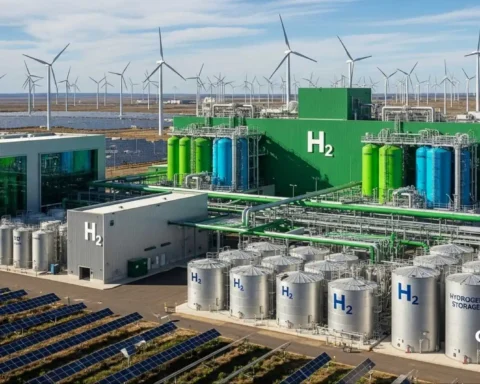The 2020–2021 Indian farmers’ protests were a response to three farm acts passed in September 2020, which aimed to reduce government involvement in agriculture and allow private investors. After a year of demonstrations, the government abandoned the laws, ending the protests.
In this article, we discuss the role of social media and how it affected the discourse.
Role of Social Media
Social media significantly influenced Indian farmers’ protests, engaged diasporic communities, and challenged popular beliefs despite its limited impact on other social justice issues. Social media platforms like Twitter, Instagram, Snapchat, and YouTube amplified farmers’ protests in India.
The Sikh community, particularly Hindu nationalists, feared a second massacre, leading to “Repeat 1984” protests. Social media revolutionised community engagement, promoting cooperation and movement-building.
Social Media Discourse Affected the Indian Government’s Response
Social media significantly influenced Indian farmers’ protests, amplifying voices and countering false narratives. The government acknowledged its impact but warned against misinformation. Critics, including Amnesty, the Office of the High Commissioner for Human Rights, and various organisations, condemned the government’s actions.
Misconceptions
The Indian farmers’ protest on social media led to misconceptions about the protesters, including their violent nature, political motivations, and selective attention. Misunderstandings included false representation of the protesters, misunderstandings about the protest’s significance, and a failure to recognise the farmers’ legitimate concerns.
Conspiracy Theories and Counterarguments
Farmers’ protest on social media in 2020 was seen by some as part of the World Economic Forum plan, involving conspiracy theories and false information, leading to Twitter and Facebook restrictions. Studies highlight fact-checking misinformation about farmers’ protests on social media, distinguishing legitimate concerns from conspiracy theories, and highlighting genuine issues for practical solutions.
The farmers’ protest on social media was countered by credible news outlets like The Guardian, New York Times, CNN, BBC, Columbia Human Rights Law Review, NPR (based in Washington, D.C.), CIPS-CEPI (Canada) fact-checking organisations like Canada Broadcasting Corporation News (CBC), and individual social media users with a large following. These sources have provided factual information, and evidence-based insights have played a crucial role in debunking misinformation and conspiracy theories.
Role of Indian and International Celebrities
Bollywood, the Hindi film industry, played a mixed role in farmers’ protests, with some celebrities supporting farmers and others supporting the government. This reflects polarised views on the protests in India and abroad. Celebrities Rihanna and Greta Thunberg endorsed farmers’ protests in India, raising awareness and solidarity. They shared news articles and resources and criticised police violence, while comedian Lilly Singh praised the issue.
International celebrities faced criticism for interfering in India’s internal affairs and spreading misinformation. The Indian government criticised sensationalist social media comments, but international celebrities supported farmers.
Impact of the Indian Farmers’ Protest
The farmers’ protests in India in 2020 had multifaceted short-term effects on the economy, including disruptions in key agricultural states, concerns about mounting losses for industries, and road blockades impacting the movement of goods and services. The protests, combined with the challenges posed by the COVID-19 pandemic, created a complex and volatile economic environment, affecting various sectors and highlighting the need for agricultural reforms.
Impact of the Protests on Indian Agriculture and Economy
The 2020-2021 Indian farmers’ protests against agricultural laws led to the government’s decision to repeal them, affecting agricultural productivity and trade. The end of the protests was expected to boost India’s GDP by 0.25%, but the long-term effects are complex.
Global Attention on the Indian Farmers’ Protest
The 2020 Indian farmers’ protest gained global attention due to social media activism, extensive international media coverage, support from international figures, solidarity protests in other countries, and discussions on human rights. This reflects the interconnectedness of social issues and the global resonance of grassroots movements. The social movement could not have been sustained without monetary help. The Sikh diaspora contributed to the cause along with other organisations such as Khalsa Aid, the Shiromani Gurdwara Parbandhak Committee (SGPC), and several others.
Impacts on the Farmers’ Livelihood
India’s farmers’ protests disrupted agricultural supply chains, causing financial losses and a daily economic impact of Rs. 3500 crore, as per the Confederation of Indian Industry (CII). The protests exposed farmers to health risks, especially during COVID-19, but also empowered them to assert their rights and challenge government policies. It encouraged farmers to adopt sustainable farming methods like organic, agroecological, and cooperative farming, raising public and international awareness.
Farmers’ Protest Effect on the Film Industry
The protest against farmers in India divided Bollywood celebrities, with some supporting them while others sided with the government. The protest affected film collections and release dates, particularly for Punjabi actors. It inspired filmmakers to document the struggle through various mediums, reflecting India’s social and political realities.
Farmers’ Protest Effect on Other Industries and Government Response
The protest disrupted transportation, logistics, and hospitality industries, causing delays and shortages. The COVID-19 pandemic deterred travellers, affecting revenue and occupancy. The government defended the economy, imposing shutdowns and legal actions. Critics called for a peaceful resolution.
The Political Landscape in India Affected
The protest exposed Modi’s authoritarian tendencies, suppressed farmers’ demands, and led to farm laws being repealed. It galvanised opposition parties, civil society, and religious minorities while promoting inclusive democracy. The protest significantly impacted the upcoming state assembly elections, particularly in Punjab and Uttar Pradesh, and raised political awareness among farmers and rural populations.
The Image of India Abroad and International Relations Affected
India’s protest, involving millions of farmers, demonstrated democracy’s strength but damaged the government’s reputation, leading to accusations of human rights violations and diplomatic backlash. Protests against the Indian government’s farmer actions gained international support, causing diplomatic disputes, strained relations with allies, and disrupting economic and trade ties with markets like China, the EU, and the UAE.
Conclusion
Mass protests in a rapidly developing nation have multifaceted global implications. The rest of the world is watching India as it is in the process of emerging from its past. We hope that in the future, such incidents will be avoided by all concerned for the welfare of their nations. Today’s world of ‘strife at every point ‘is not the way forward for human civilisation.










[…] commences, and none is safe. As if echoes of colonial masters seeking more than just salt, the new media emerges, thirsting for the elixir of our minds. A sinister voyage unfolds, where biases unfurl like […]
[…] who influence trends, consumer behaviour, and even societal norms in the ever-evolving field of social media. With many followers across different stages, these digital content makers use critical impact and […]
[…] Social Media is a powerful tool in shaping public opinion and the media landscape. However, its impact on the freedom of press is both beneficial and harmful in different ways. […]
[…] farmers play a significant role in reducing agricultural waste. They can do so by adopting sustainable […]
[…] rapid spread of information through digital communication channels such as social media has encouraged citizens from various countries to question and challenge authoritative bodies and […]
[…] duo of fast fashion and social media has undoubtedly played a pivotal role in amplifying consumerism to insane levels, creating a storm […]
[…] also emerged due to the availability of financial services and other support systems that assist farmers in acquiring the resources they need to expand their operations. Governments, NGOs, and private […]
[…] and analyze social media performance. Strong communication skills and a solid understanding of social media platforms are crucial for this […]